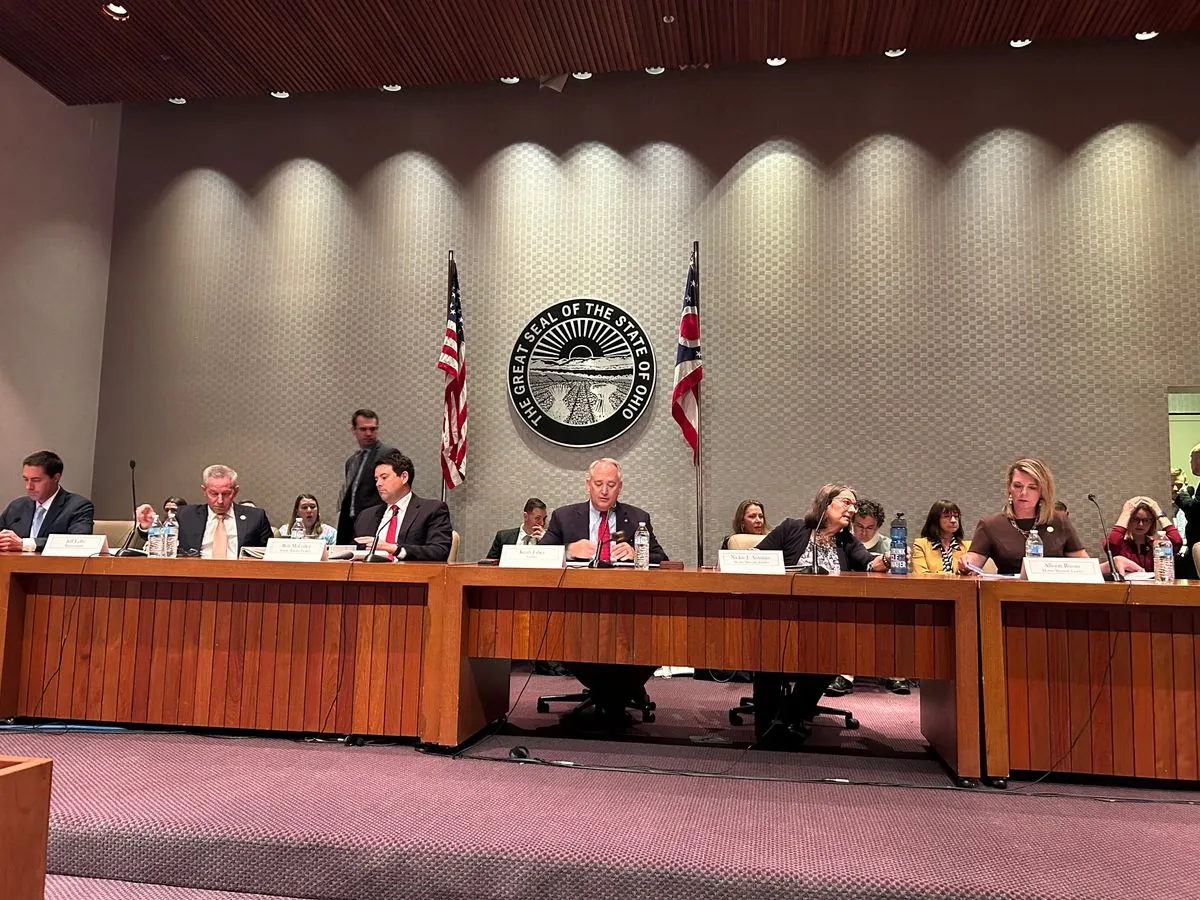Ohio Ballot Board Approves Controversial Redistricting Amendment Language
Ohio's ballot board approves contentious language for a fall redistricting amendment, sparking criticism and legal action threats from supporters. The proposal aims to create a citizen-led commission to prevent gerrymandering.

In a contentious decision, the Ohio ballot board has approved language for a fall 2024 redistricting amendment, prompting swift criticism and promises of legal action from the proposal's supporters. The amendment, aimed at establishing a 15-member citizen-led redistricting commission, has become the center of a heated debate over voter information and the future of Ohio's electoral map-drawing process.
The Republican-controlled panel's approved language describes the proposed commission as "not elected by or subject to removal by the voters of the state." This characterization has drawn sharp criticism from supporters of the initiative, who argue that it misrepresents the amendment's intent to prevent partisan gerrymandering.
Catherine Turcer, executive director of Common Cause Ohio, expressed her dismay at the approved language, drawing a parallel to George Orwell's dystopian novel "1984." She stated, "The way that the ballot language plays around with the word 'gerrymandering' to make it mean exactly what it doesn't is both jaw-dropping and it makes you question the integrity of elected officials."
The controversy surrounding the ballot language highlights the ongoing struggle in Ohio to address the issue of gerrymandering, a practice that involves manipulating electoral district boundaries to favor one political party. This practice has been a point of contention in Ohio's recent history, with seven consecutive sets of legislative and congressional maps being declared unconstitutionally gerrymandered in favor of Republicans by the courts.

Frank LaRose, Ohio's Secretary of State and chair of the ballot board, defended the approved language, stating that it accurately describes the complex proposal submitted by Citizens Not Politicians. However, critics argue that the language is designed to discourage support for the amendment.
The proposed amendment seeks to replace the current redistricting commission, which consists of four lawmakers, the governor, the auditor, and the secretary of state, with a 15-person citizen-led commission comprising Republicans, Democrats, and independents. This change aims to reduce partisan influence in the redistricting process, a goal that aligns with efforts in other U.S. states to implement citizen-led redistricting commissions.
Jen Miller, executive director of the Ohio League of Women Voters, announced that a legal challenge to the ballot language would be filed in the Ohio Supreme Court. She emphasized, "We'll make the point that this is just another example of why we need to get politicians out of the redistricting process."
The debate over the ballot language underscores the importance of clear and accurate information in the democratic process. As Ohio voters prepare to make a decision on this significant amendment in fall 2024, the controversy surrounding its description on the ballot raises questions about voter understanding and the potential impact on the outcome.
"The way that you end up on the current commission is pretty straightforward. (The proposed process) is a bit of a Rube Goldberg device that involves a lot of twists and turns."
As the legal challenge unfolds and public discourse continues, Ohio's redistricting amendment serves as a reminder of the ongoing efforts to ensure fair representation and the challenges inherent in reforming electoral processes. The outcome of this initiative could have far-reaching implications for Ohio's political landscape and serve as a model for other states grappling with similar issues.


































